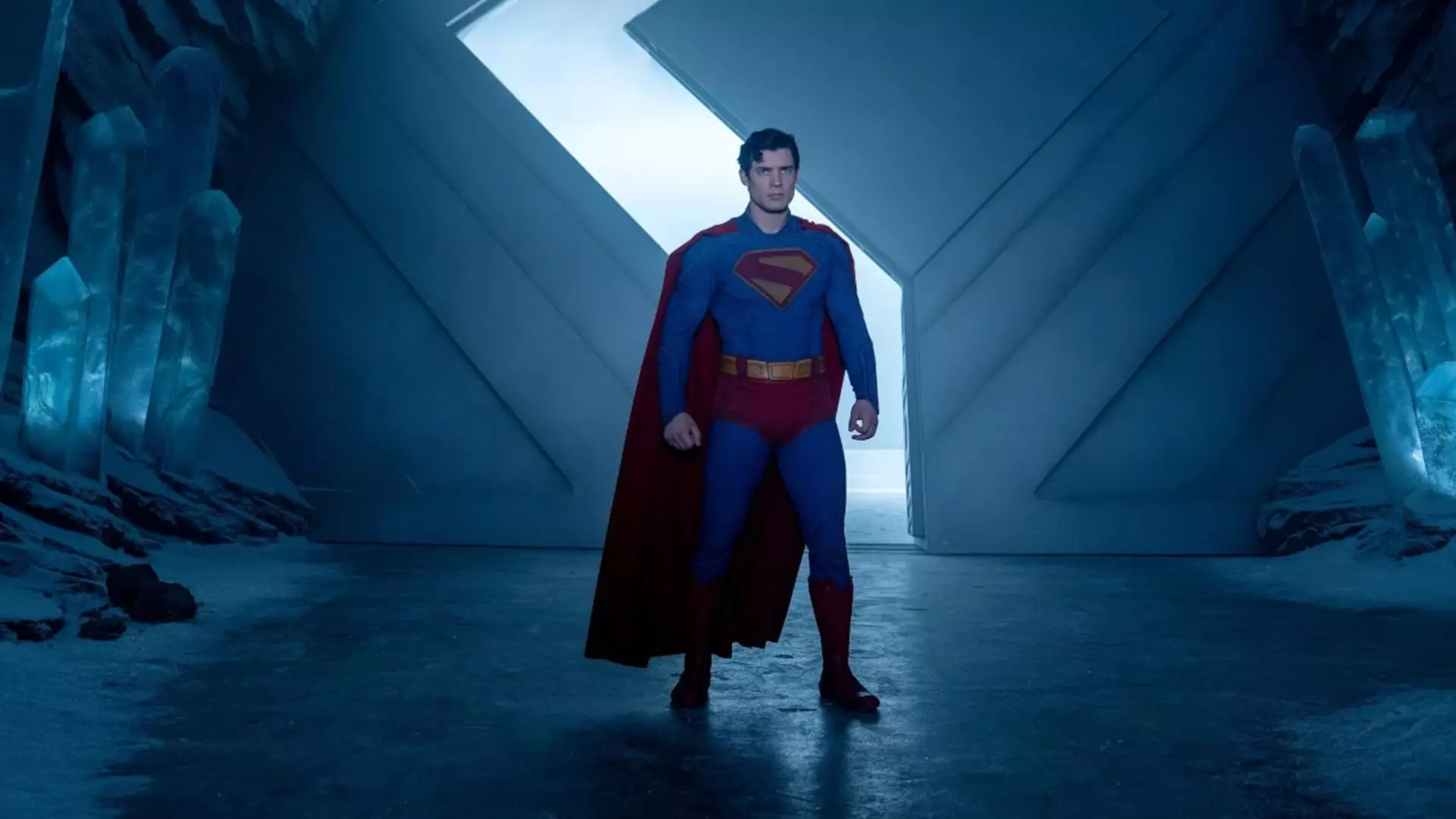The recent preview figures for Warner Bros.’ “Superman” offer more than just a promising start—they serve as a critical barometer for the franchise’s trajectory amidst a landscape of fluctuating consumer confidence in superhero cinema. Bringing in $22.5 million ahead of its nationwide release, this figure ranks as the third-highest for a DC superhero preview, trailing behind historic blockbusters like “The Dark Knight Rises.” Such early enthusiasm indicates that Warner Bros. and DC have managed to reignite some level of fan interest, which has waned over recent years owing to inconsistent storytelling and franchise fatigue.
However, one must be cautious. While the previews are impressive, they don’t guarantee sustained box office dominance. The benchmarks set by “The Dark Knight Rises” and other high-performing films underscore the immense pressure riding on this new Superman installment. The filmmakers are navigating a challenging balancing act: honoring the nostalgic appeal of the hero while reinventing him in a way that resonates with contemporary audiences tired of recycled narratives. If the film meets or surpasses its projected $130-140 million opening, it could mark a turning point for a previously declining franchise. Otherwise, the high expectations risk magnifying any shortcomings, leading to a potentially disappointing summer for DC.
Strategic Implications for DC’s Future and Its Competitive Landscape
The reboot under James Gunn and Peter Safran signals a strategic pivot within Warner Bros. Discovery’s broader approach to superhero storytelling. Having inherited a franchise that has seen highs—like “The Dark Knight” trilogy—and lows, they are attempting to craft a cohesive vision that balances creative reinvention with audience trust. The emphasis on a 10-year plan signifies an understanding that sustained success in this domain hinges on consistent quality rather than sporadic hits.
In this context, “Superman” is not just a standalone film but a litmus test for DC’s capacity to attract both traditional comic book fans and a wider audience, including families and newer viewers. The film’s favorable critical reception—an 83% score from Rotten Tomatoes—offers a promising sign that the narrative may be more than just spectacle; it could be thematically relevant, emotionally resonant, and purposefully rooted in hope. This is a stark contrast to some recent franchise entries that prioritized visual effects over storytelling substance.
From a strategic standpoint, Warner Bros. and DC are banking on Gunn and Safran’s leadership to secure a competitive edge against Marvel and other entertainment giants that dominate the superhero genre. If the film succeeds at the box office, it can reset perceptions and reaffirm that DC isn’t merely playing catch-up but can lead with compelling, carefully curated hero narratives. Conversely, failure to meet expectations could further hurt DC’s credibility and diminish investor confidence, forcing the studio to reconsider its long-term plans.
What This Means for Fans and the Broader Cultural Narrative
The cultural implications of this upcoming Superman film extend beyond box office numbers. Fans are seeking authenticity—stories that are rooted in the character’s core values amid a world increasingly skeptical of heroism and idealism. If the film manages to strike the right chord, it could breathe new life into the archetype of Superman as a symbol of hope—you know, the kind of hero the world needs more than ever.
Yet, there’s a risk that the reboot might lean too heavily on nostalgia without offering fresh insight or relevance. The challenge for Gunn and Safran is to craft a story that respects the character’s legacy while also reflecting contemporary societal concerns. This balance is crucial—not just for fans who crave familiarity but also for new viewers who want more than recycled plotlines plastered with CGI.
In the end, the next few weeks will reveal whether Warner Bros., under pressure to prove its strategic shift, can deliver a film that redefines Superman’s role in the modern era. It’s not simply about beating box office expectations; it’s about setting a precedent for what superhero storytelling can and should be in the years to come. If successful, this could be a watershed moment—not just for DC, but for the genre as a whole, demonstrating that genuine storytelling rooted in hope and responsibility remains compelling in an increasingly cynical cultural landscape.

